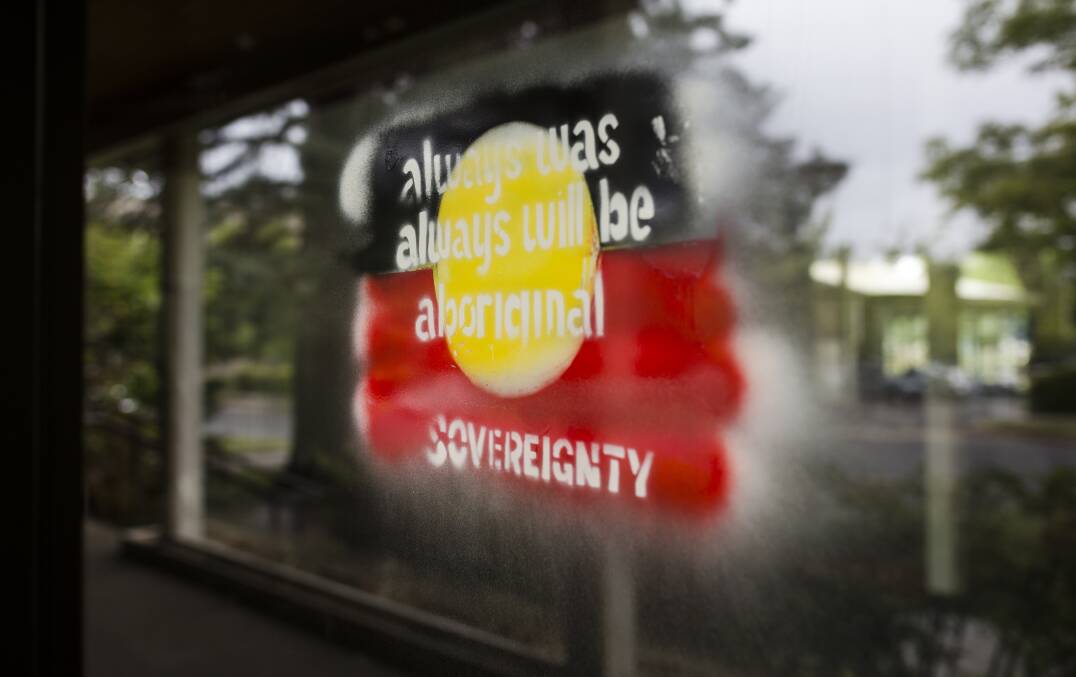
A settlement between Ngambri custodians and the ACT government that is set to recast the territory's engagement with traditional owners is an affront to Ngunnawal custodianship, Ngunnawal custodians have said.
Ngunnawal custodians also called on the ACT government to meet with them to clarify what a recent decision to review its Indigenous protocol would mean for engagement with Ngunnawal people.
"The recent decision raises more questions than it answers, and we respectfully seek to have our questions answered," the group said.
Indigenous Affairs Minister Rachel Stephen-Smith will meet with the custodians later this month.
The custodians in a statement said efforts by Ngambri people to seek equal recognition as traditional custodians of the ACT risked exacerbating trauma and could set a dangerous precedent that would recognise self-identification as evidence of traditional custodianship.
"Self-identification must not be misconstrued for, nor is it the intent of, self-determination. We understand and respect the right to self-determination, but this should not supersede traditional custodianship," the Ngunnawal statement said.
The ACT government committed to a comprehensive review of its Indigenous protocol, which up to now had only recognised Ngunnawal people as the traditional custodians of the lands comprising the territory.
The agreement was reached following a Supreme Court action brought by Ngambri custodians, who argued the ACT's "one tribe" policy went against human rights law obligations to the Ngambri people.
Ngambri custodian Paul Girrawah House led a Supreme Court action under the Human Rights Act last year, claiming the Ngambri custodians' human rights had been violated by the government's refusal to recognise them as traditional owners.
The government also apologised to Ngambri custodians for the "hurt and distress" caused by its long-term refusal to accept their claim to traditional ownership.
The Ngunnawal custodians' statement said they reaffirmed and reasserted their cultural authority as custodians of the lands and waterways.
"Our cultural authority as traditional custodians is recognised and understood across many family groups that make up the Ngunnawal people. It's not about one family group; instead, it's about a collective of families who have continued to maintain, preserve and strengthen our culture and what it means to be Ngunnawal since time immemorial," the statement said.
The Ngunnawal custodians called on any groups seeking to make a claim to their lands to produce independent evidence of their connection.
"We seek to engage in a respectful and good-faith process. This discussion must move beyond just one or two family groups asserting their rights to our lands. This discussion needs to be grounded in facts and underpinned by respect," the statement said.
Indigenous Affairs Minister Rachel Stephen-Smith last week said decisions of who should be recognised as traditional owners in the territory should be made by those people who have a connection to country.
"Fundamentally, we don't believe that this should be a decision that is made by government or the courts," Ms Stephen-Smith said.
However, Ms Stephen-Smith acknowledged there was potential for matters of recognition to be considered through native title processes.
"What we also know about the ACT, though, is that when it became the capital territory, people were moved off country. And so those continuing connections to the land in the ACT have been broken in most cases," she said.
"So the capacity to actually make the native title claim is potentially quite limited in that regard."
The Ngunawal Traditional Owners Network began work on a fresh native title claim last year.
Two separate undetermined native title claims over the ACT were discontinued after the ACT entered an agreement with the claimants over the Namadgi National Park in April 2001.
Mr House last week said a native title claim was an option Ngambri custodians would consider.
Claims trigger a Federal Court process to make a determination on the evidence of a group's claim.
Ms Stephen-Smith said recognition in the ACT was a "deeply personal and complex issue for traditional custodians".
"The evidence supporting Ngunnawal traditional custodianship of this land is very strong and we continue to recognise Ngunnawal as traditional custodians," Ms Stephen-Smith said.
The ACT government formally recognised the Ngunnawal people as the traditional owners of the Canberra area in August 2009, following a request from the United Ngunnawal Elders Council.
"The ACT government's adoption of the use of the term 'Ngunnawal' to identify the traditional custodians of the ACT was based on advice from a special meeting of Ngunnawal community members in May 2002," the protocol adopted at the time said.
We've made it a whole lot easier for you to have your say. Our new comment platform requires only one log-in to access articles and to join the discussion on The Canberra Times website. Find out how to register so you can enjoy civil, friendly and engaging discussions. See our moderation policy here.







